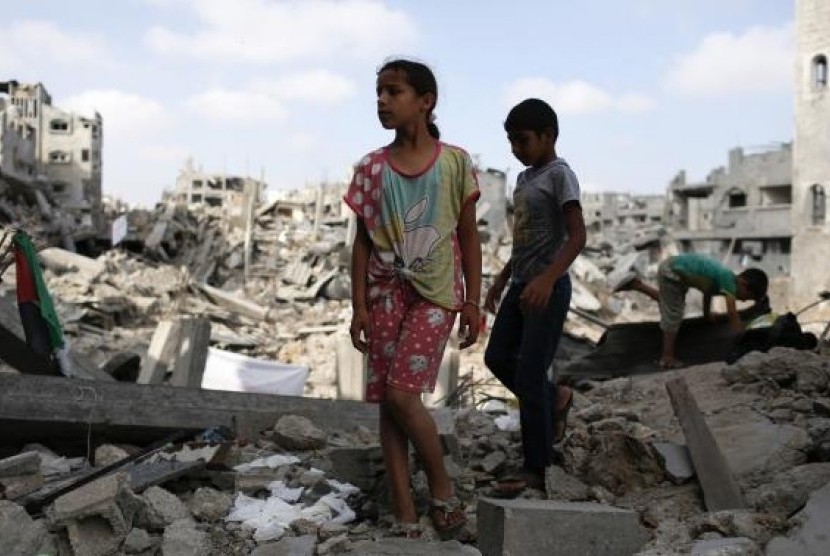REPUBLIKA.CO.ID, GAZA/CAIRO - Talks to end a month-long war between Israel and Gaza fighters are "difficult", Palestinian delegates said on Tuesday, while an Israeli official said no progress had been made so far.
As a 72-hour ceasefire held for a second day, Palestinian negotiators began talks with Egyptian intelligence after a meeting on Monday that lasted nine hours. The Israeli delegation returned to Cairo on Tuesday. Hamas and its allies are seeking an end to an Israeli and Egyptian blockade of the Gaza Strip.
"We are facing difficult negotiations," Hamas' leader in Cairo, Moussa Abu Marzouk, said on Twitter.
Egyptian state news agency Mena quoted Khaled al Batch, a leader of Hamas ally Islamic Jihad, as saying the present round of talks was "the most serious, intensive and difficult."
"The gaps between the sides are big and there is no progress in the negotiations," said an Israeli official who declined to be named. There was no immediate comment from Hamas, the Islamist group that dominates Gaza.
A Palestinian official with knowledge of the Cairo talks told Reuters, on condition of anonymity: "So far we can't say a breakthrough has been achieved ... Twenty-four hours and we shall see whether we have an agreement."
Hamas also wants the opening of a seaport for Gaza, a project Israel says should be dealt with only in any future talks on a permanent peace agreement with the Palestinians. Israel has resisted lifting the economically stifling blockade on Gaza and suspects Hamas will restock with weapons from abroad if access to the coastal territory is eased. Neighboring Egypt also sees Hamas as a security threat.
Israel pulled ground forces out of Gaza last week after it said the army had completed its main mission of destroying more than 30 tunnels dug by militants for cross-border attacks. It now wants guarantees Hamas will not use any reconstruction supplies sent into the enclave to rebuild those tunnels.
The Palestinian official said the Palestinian delegation had agreed that reconstruction in Gaza should be carried out by the unity government of technocrats set up in June by Hamas and the more secular Fatah party of Western-backed Palestinian President Mahmoud Abbas, who is based in the West Bank.
Israeli representatives are not meeting face-to-face with the Palestinian delegation because it includes Hamas, which Israel regards as a terrorist organization.


